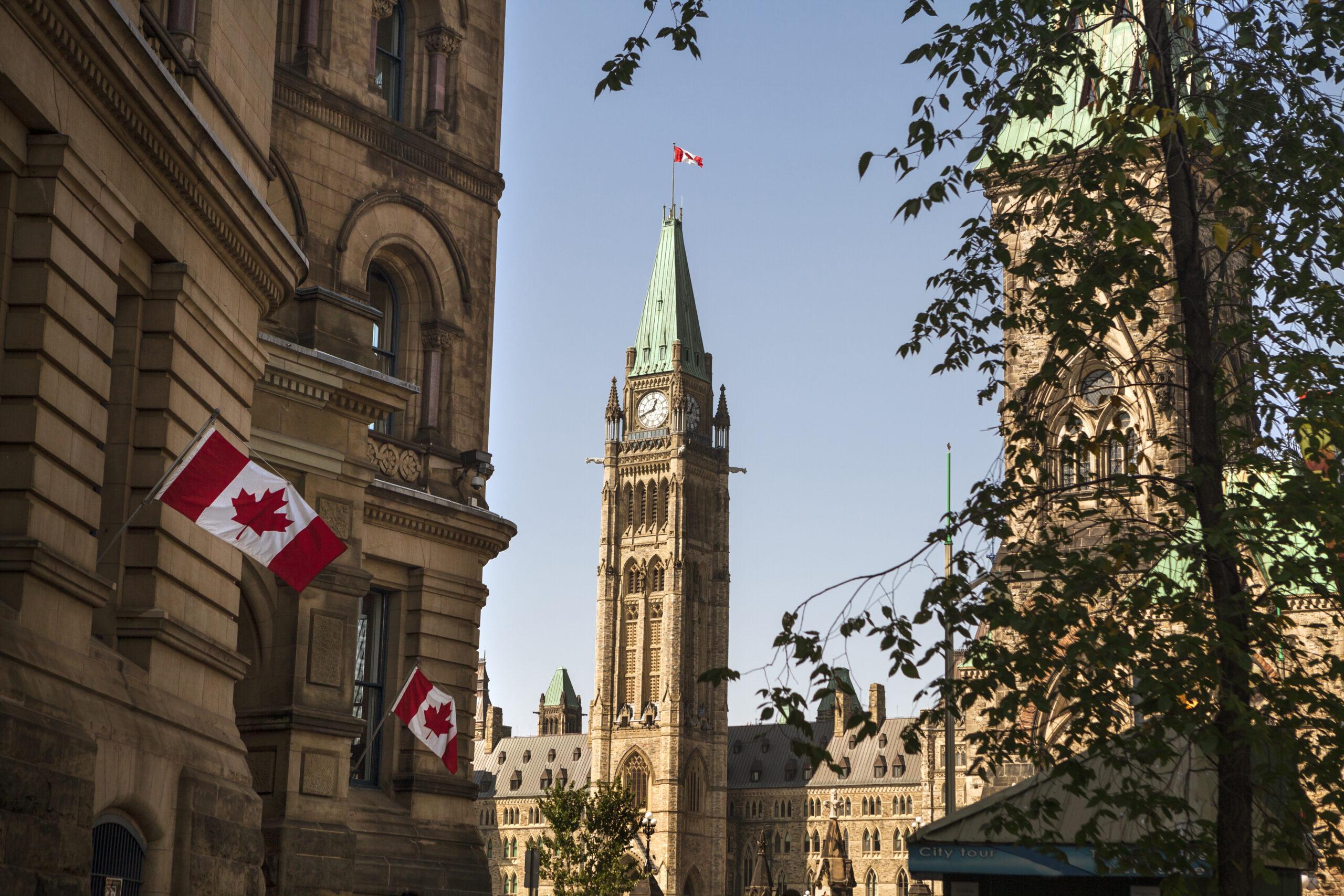


Canada Enters into Cooperation Framework with the Competition Enforcement Agencies of the “Five Eyes” Countries
Canada Enters into Cooperation Framework with the Competition Enforcement Agencies of the “Five Eyes” Countries
On September 2, 2020, the Competition Bureau announced that it has entered into a new competition enforcement framework with competition agencies of the United States, the United Kingdom, Australia, and New Zealand, the other four members of the so-called “Five Eyes” intelligence alliance.
The new Multilateral Mutual Assistance and Cooperation Framework for Competition Authorities (MMAC) is intended to enhance the Bureau’s ability to cooperate with other agencies in competition law enforcement. Notably, the MMAC includes a model agreement that can be used by the participating agencies as a basis for negotiating future bilateral or multilateral cooperation agreements between or among themselves.
The Bureau’s Existing Cooperation Frameworks
Currently, the Bureau engages in cooperation with foreign competition agencies primarily under three frameworks.
First, the Bureau relies on inter-governmental cooperation agreements regarding the application of competition laws. Canada has entered into these government-to-government agreements with the United States, Mexico, Japan and the European Union, which are some of Canada’s largest trading partners.
Second, the Bureau has entered into inter-agency cooperation instruments with foreign competition agencies of 14 jurisdictions,[1] typically referred to as Memoranda of Understanding (MOU) or Cooperation Arrangements.
The inter-governmental cooperation agreements and the inter-agency cooperation instruments typically provide for very similar substantive provisions, including:
- notification between parties regarding competition law enforcement activities that might affect important interests of the other;
- cooperation through sharing of information that may be relevant to the other party’s enforcement activities;
- coordination of enforcement activities with regard to related matters;
- protection for confidential information and restriction on the use of any shared information by the receiving party.
Third, Canada is party to numerous bilateral and multilateral Mutual Legal Assistance Treaties (MLATs).[2] MLATs provide a mechanism for Canada and its co-signatory foreign state to request assistance from each other for purpose of criminal investigations and enforcement, including criminal investigations and enforcement relating to competition law offences. The Mutual Legal Assistance in Criminal Matters Act (MLA Act)[3] provides the legal authority for the Canadian government to enter into MLATs relating to criminal matters, defines the types of assistance Canada can provide to a foreign state pursuant to an MLAT, and specifies the procedure for providing such assistance. Under the MLA Act, the types of assistance the Canadian government is permitted to provide to a co-signatory of a MLAT upon request includes the collection of fines,[4] restraint, seizure and forfeiture of property,[5] search and seizure,[6] compulsory examination under oath and production of documents,[7] examination of a place or site in Canada,[8] and transfer of detained persons.[9] However, the types of assistance the Canadian government is authorized to provide and the circumstances under which assistance can be given are ultimately defined by the terms of the applicable MLAT. Generally speaking, the MLA Act requires that, after receiving a valid request for assistance from a co-signatory, a Canadian law enforcement agency (including the Competition Bureau) must apply to a court for an order that authorizes it to execute the request for assistance. The entire process for providing assistance pursuant to the MLA Act is heavily supervised by courts.
Mutual Legal Assistance Treaties in Civil Competition Matters
In addition to the three frameworks for international cooperation described above, Part III of the Competition Act[10] also provides the Canadian government with the legal authority to enter into MLATs with foreign governments in respect of competition law matters that are not covered under the MLA Act, i.e., civil competition matters, such as mergers and abuse of dominance investigations. It sets up a framework for the use of compulsory processes in Canada, such as search and seizure warrants and orders for document and information production and oral examinations, to obtain evidence in aid of an investigation by a foreign competition agency. This process largely parallels that established for criminal matters under the MLA Act. While Part III of the Competition Act was introduced in 2002, Canada has not concluded any civil MLATs under these provisions to date.
Significance of the New MMAC
The MMAC contemplates increased high-level cooperation between the competition agencies of the five jurisdictions, including:
- exchanging information on the development of competition issues, policies and laws;
- exchanging experience on competition advocacy and outreach, including to consumers, industry, and government;
- developing agency capacity and effectiveness by providing advice or training in areas of mutual interest, including through the exchange of officials and through experience sharing events;
- sharing best practices by exchanging information and experiences on matters of mutual interest including enforcement methods and priorities; and
- collaborating on projects of mutual interest, including via establishing working groups to consider specific issues.
Importantly, the MMAC contemplates increased mutual assistance and cooperation in investigations and enforcement activities. The inclusion of the model agreement is crucial in this regard.
The model agreement is notable in two respects. First, the types of investigative assistance contemplated by the model agreement go beyond information sharing and coordination of enforcement activities, which are typical in the existing inter-governmental and inter-agency cooperation instruments the Bureau relies on. Similar to the MLATs in criminal matters, the model agreement contemplates the use of compulsory processes to obtain information at the request of another party, including:
- taking the testimony or statements of persons or otherwise obtaining investigative information from persons;
- obtaining documents, records, or other forms of investigative information;
- locating or identifying persons or things; and
- executing searches and seizures;
Second, the model agreement is drafted to contemplate that laws “in relation to cartels and other anti‑competitive agreements, unilateral conduct or monopolistic practices, and merger control” would be with its scope. In other words, investigative assistance may be available under the model agreement for civil as well as criminal competition matters.
It remains to be seen how the model agreement will be used as the basis for the MMAC members to negotiate new cooperation instruments. However, the inclusion of this model agreement with these important features in the MMAC is an important step in the Bureau’s long-running initiative to enhance its ability to cooperate with foreign competition agencies and lays the groundwork for the Bureau to make use Part III of the Competition Act.
by William Wu and Sarah Stirling-Moffet
[1] Australia, Brazil, Chile, China, Colombia, Hong Kong, India, Japan, New Zealand, Peru, Singapore, South Korea, Taiwan, United States.
[2] Canada is currently a co-signatory of MLATS with the following countries: Antigua and Barbuda, Argentina, Australia, Austria, Bahamas, Barbados, Belgium, Brazil, China, Cuba, Czech Republic, France, Germany, Greece, Hong Kong, Hungary, India, Israel, Italy, Jamaica, Kazakhstan, Kenya, Luxembourg, Mexico, Netherlands, Norway, Peru, Poland, Portugal, Romania, Russia, South Africa, South Korea, Spain, Sweden, Switzerland, Thailand, Trinidad and Tobago, Ukraine, United Kingdom, United States, and Uruguay. In addition, Canada is also a party to the Inter-American Convention for Mutual Assistance in Criminal Matters, whose co-signatories include Antigua and Barbuda, Argentina, Bahamas, Bolivia, Brazil, Chile, Colombia, Costa Rica, Dominica, Czech Republic, Ecuador, El Salvador, Grenada, Guatemala, Guyana, Honduras, Jamaica, Kazakhstan, Mexico, Nicaragua, Panama, Paraguay, Peru, Suriname, Trinidad and Tobago, United States, Uruguay, and Venezuela.
[3] R.S.C., 1985, c. 30 (4th Supp.)
[4] Id. § 9.
[5] Id. § 9.3
[6] Id. § 12.
[7] Id. § 18.
[8] Id. § 23.1.
[9] Id. § 24.
[10] R.S.C., 1985, c. C-34. (Can.)
A Cautionary Note
The foregoing provides only an overview and does not constitute legal advice. Readers are cautioned against making any decisions based on this material alone. Rather, specific legal advice should be obtained.
© TRC-Sadovod LLP 2020
Insights (5 Posts)View More
Attracting Venture Capital and Private Equity Investors: The Alberta Business Corporations Act Makes Alberta the Most Investor and Business Friendly Corporate Jurisdiction in Canada
Reforms to the corporate legal regime in Alberta make it the province of choice for businesses and investors alike.
New Corporate Transparency Requirements for Federal Corporations
Effective January 22, 2024, federal corporations are required to file with Corporations Canada certain information on individuals with significant control.
Structuring Mortgage Investment Corporations in Canada
An overview of structuring Mortgage Investment Corporations or "MICs" in Canada
Working for Workers Four Act, 2023: How Ontario’s Proposed Changes Will Impact Employers
This bulletin discusses new employer obligations for job postings, tip and wage protections, and more as proposed in the Working for Workers Four Act, 2023.
Plan for the Ban: What the Federal Court’s Decision ACTUALLY Means for Your Business – Your Questions Answered
The Court decision in Responsible Plastic Use Coalition v Canada struck down Canada's decision to add plastic manufactured items to the List of Toxic Substances
Get updates delivered right to your inbox. You can unsubscribe at any time.





